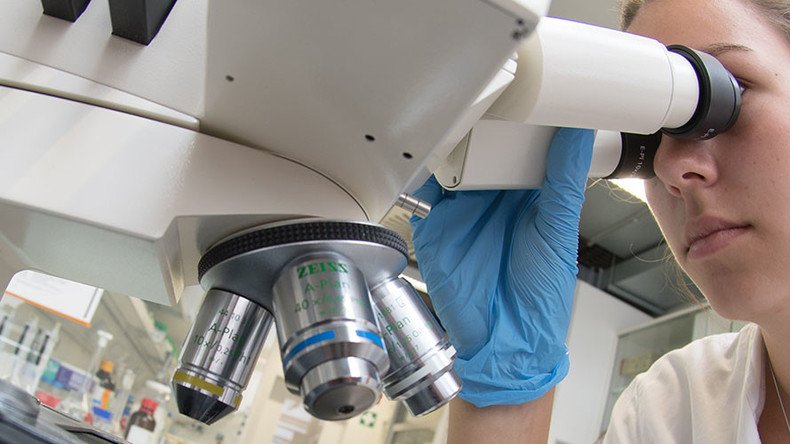'Ingenious': Chinese scientists edit human embryo, could end hereditary disease

Chinese scientists have successfully altered the genetic code of a human embryo, an “ingenious” breakthrough that experts believe could be key to eradicating hereditary diseases.
Using a technique known as ‘base editing’, researchers from Sun Yat-sen University in Guangzhou filtered through three-billion ‘letters’ of our genetic code to remove a single error responsible for a potentially deadly blood disorder.
"We are the first to demonstrate the feasibility of curing genetic disease in human embryos by base editor system,”Junjiu Huang, one of the scientists involved in the research, told BBC.
READ MORE: Gene-edited mutant ants create chaotic colony
During the experiments, which were carried out on tissues taken from a patient with the blood disorder beta-thalassemia and inserted into cloned human embryos, a strand of DNA was examined to pinpoint the offending base. The team then used base editing, a more advanced form of the Crispr gene-editing technique to repair the faulty gene.
Such is the level of precision involved in base editing that Professor David Liu of Harvard University, a pioneer of the technique, dubbed it “chemical surgery.”
“Base editing has the potential to directly correct, or reproduce for research purposes, many pathogenic [mutations]," Liu said, adding that it is more efficient than Crispr as it has fewer unexpected side-effects.
"Every generation on would carry this repair because we've removed the disease-causing gene variant" https://t.co/ubSfhUlWqr
— RT America (@RT_America) August 3, 2017
The study, which has been published in the journal Protein and Cell, presents serious ethical questions for scientists.
While describing parts of the study as “ingenious,” Professor Robin Lovell-Badge of the Crick Institute in London called for robust regulation the techniques employed in gene editing.
"There would need to be far more debate, covering the ethics, and how these approaches should be regulated,” Lovell-Badge said. "And in many countries, including China, there needs to be more robust mechanisms established for regulation, oversight, and long-term follow-up."
DNA breakthrough means ‘superior’ designer babies could form new social elite - geneticist https://t.co/dzX7ycPVRa
— RT (@RT_com) August 7, 2017
The debate is also raging in the US, where the National Academy of Science and the National Academy of Medicine recommended easing the blanket ban on modifying DNA in February this year.
“We’ve always said in the past gene editing shouldn’t be done, mostly because it couldn’t be done safely. That’s still true, but now it looks like it’s going to be done safely soon,” Richard Hynes, a cancer researcher at the Massachusetts Institute of Technology who co-led the committee, told the New York Times.












